Blog
Insights
Private Label Evolution: Via Pacifica’s Strategy for Growth and Quality
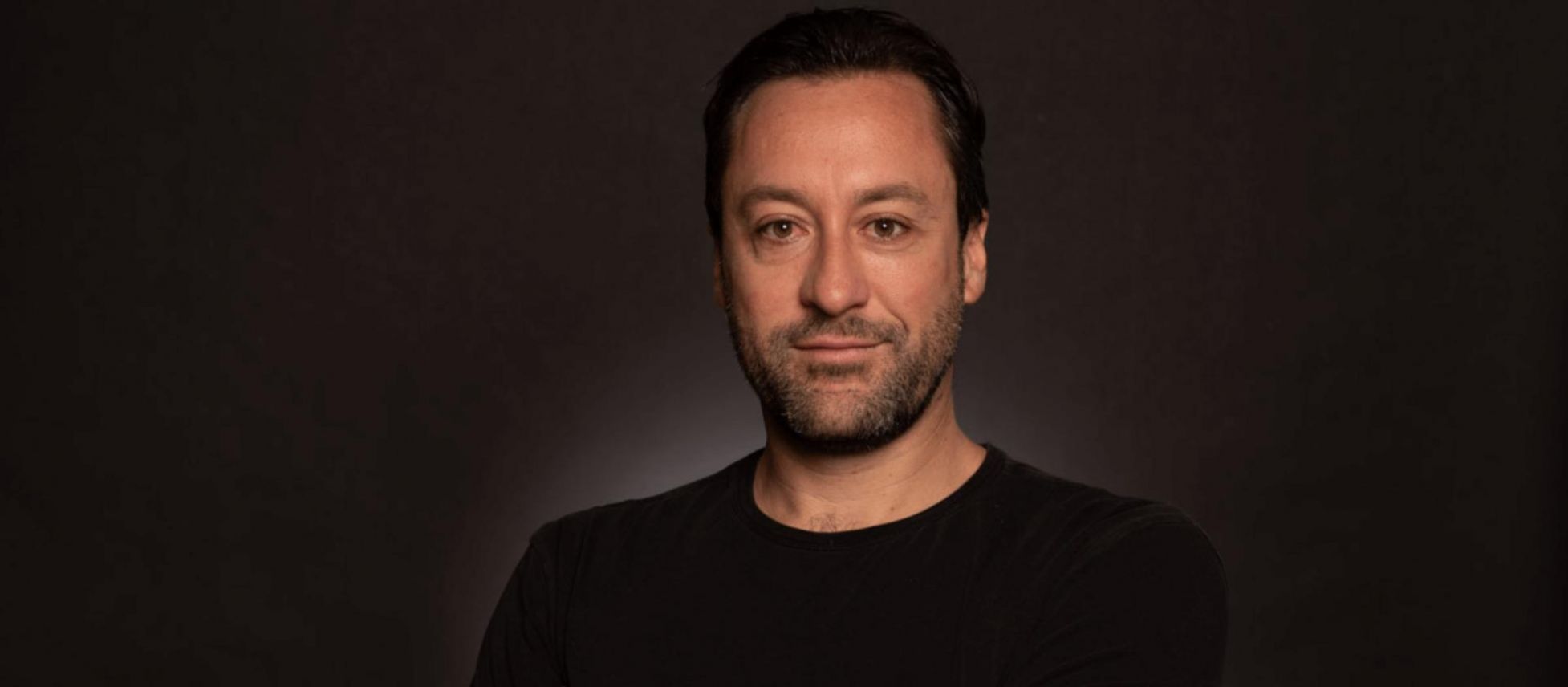
Via Pacifica’s CEO on wine quality, retail partnerships, and industry shifts.
Private label wines are no longer just about budget-friendly alternatives on retail shelves—they have become a serious player in the U.S. wine market, often rivaling established brands in quality and reputation. Via Pacifica US is a company that has built its success not by simply supplying wine but by partnering actively with retailers, hospitality groups, and importers to create tailored, high-quality private label programs.
Cristobal Fernandez, CEO of Via Pacifica US brings over 15 years of experience in international wine markets. His approach is refreshingly pragmatic: treat private labels with the same care as owned brands, embrace flexibility, and focus on long-term relationships over quick wins. In this conversation, Fernandez shares his insights on the evolving private label market, the challenges of distribution, and the key trends shaping the industry’s future.
The private-label wine market is rapidly growing in the U.S. How does Via Pacifica differentiate its wines to stand out in this competitive landscape?
We treat private labels as if they were our brands. We care about how they look, taste, and price points. We are somehow partners in crime and not just a wine factory pushing cases out. I may even go help sell. It’s in our interest, too.
Additionally, we understand the difficulties of distribution, logistics, and the cost of work capital, so we can customize a plan that fits the client in every sense, from MOQ to how and where they want their inventory (EXW, CIF, Delivered to each Distributor, offer warehousing, etc.). We are flexible. When you go to a show looking at something and they tell you 5 truckloads, advanced payment, and 120 days lead time, that’s not us.
We walk along the path together.
Many private-label brands now compete with top-tier brands. What steps does Via Pacifica take to ensure consistency and maintain high-quality standards across its portfolio?
Quality is our focus and we constantly get 90+ points from top reviewers. Packaging is constantly in the look-up, so it is pricing. This is a dynamic game, and we are reading the course with all the best and freshest data to make sure our clients are moving in the right direction with their private label programs. That flexibility and ability to change fast is what a brand can’t do.
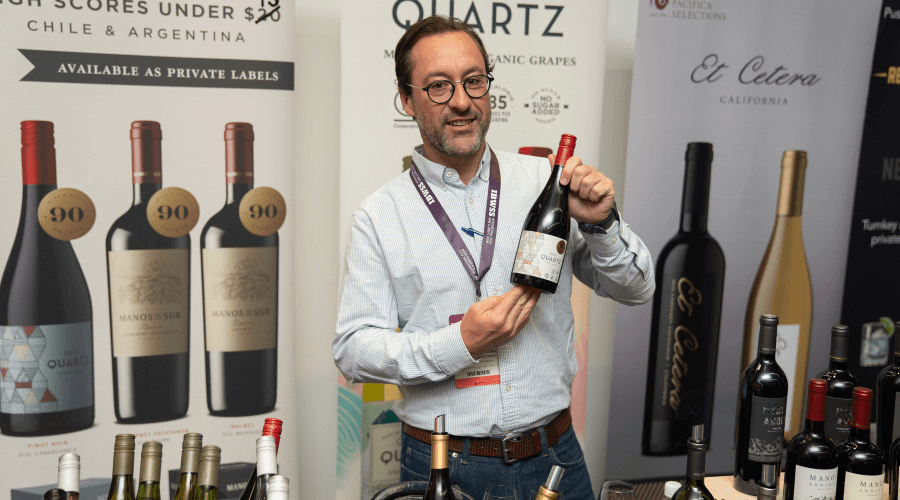
Image: Cristobal Fernandez, CEO of Via Pacifica US at 2023 IBWSS SF.
Can you share some of Via Pacifica’s most successful partnerships with retail chains, restaurant groups, or distributors? What factors have contributed to these successes?
I prefer not to give names, but what makes us very proud is that we have not lost one single client. It may take us time to get a new one, but once we are working together, we are growing, developing new ideas, and building relationships. Again, we have not lost one client since we started. We make private labels for retailers, hotels, restaurants, importers, and online clubs and we are just scratching the surface.
How does Via Pacifica navigate partnerships with large retailers and restaurant chains? What are the key considerations when developing exclusive wine programs for these buyers?
Distributions are key and are the toughest to get all done right. Large retailers request 100% distribution coverage in their territory(ies), but they have their 80/20 and when you are dealing with their 20% and must convince a distributor to take 7 cases, that’s when your work matters. Temptation and logic tell you to underserve the small ones, and focus on the big ones; but’s that where we make the difference. We look at the small drops and we care about the details, as we would be accountable for them.
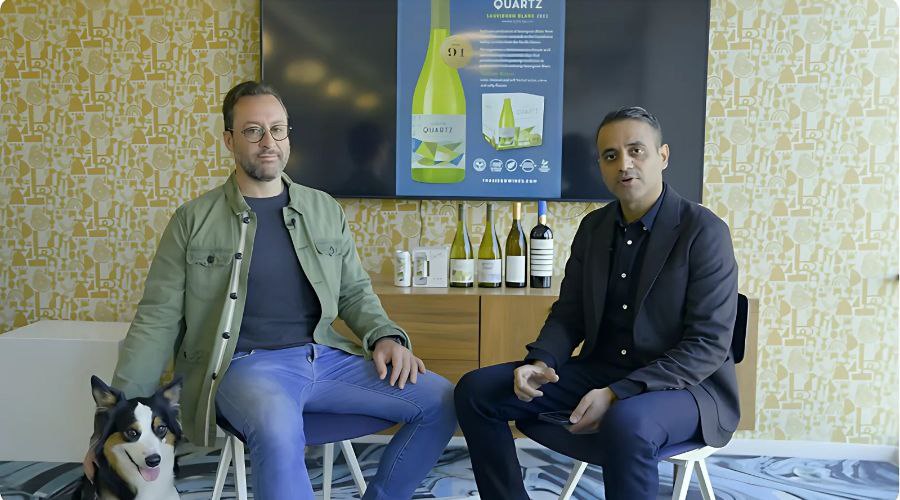
Image: Inside The Drinks Business | How To Grow Your Private Label Business - Sid Patel, CEO of Beverage Trade Network and IBWSSchats with Cristobal Fernandez, GM - Partner at Via Pacifica Selections. Watch this interview.
What challenges and opportunities do you see when identifying and securing buyers for private-label wines? What are retailers and hospitality groups looking for in a supplier like Via Pacifica?
Nobody gave us any business on day one. We are building it case by case and we started small. Building success stories, and having happy clients. That aura grows and good clients read that. The experience and care for details matter.
We do not pitch beyond our capabilities, and we know our skills, so when we have conversations with clients, we are not selling ourselves, we are literally brainstorming on the best way to develop a plan together, and that’s what sets us apart.
With private-label wines becoming a bigger share of the U.S. market, what strategies does Via Pacifica employ to expand its presence and grow market share?
We are constantly innovating and looking at trends and categories to make sure we are guiding our private label partners to look at the bright spots, and at the same time training ourselves to dominate ahead of everyone in these areas. We move fast for certain.
The sensitivity to cost is huge, so we are also constantly working on our supply chain to pass on every possible saving to our private label partners to invest in their own brands.
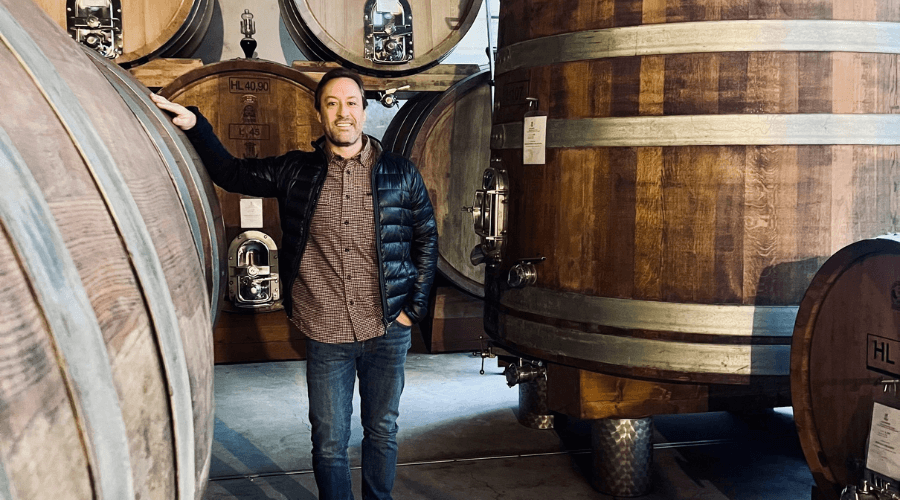
Image: Cristobal at the winery.
Given your experience in international wine markets, how do you see private-label wines evolving within the U.S. market over the next five years?
It will keep growing and from small to big retailers, the profit game for their wine category will be dictated by their private label programs’ success. I don’t see any risk or bubble here, will just keep growing, now at the expense of non-relevant brands, but hopefully in the future out of a bigger wine category for all.
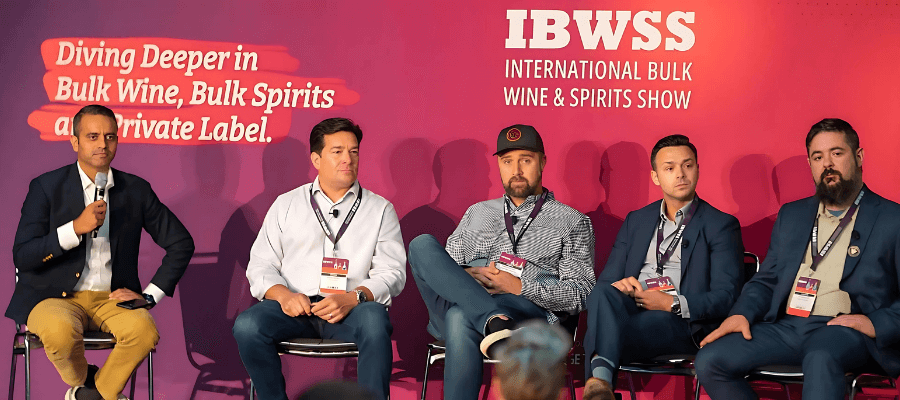
Image: IBWSS 2023.
Where do you see Via Pacifica in the next decade? What are the biggest opportunities and challenges ahead for the company?
We clearly see that sustainability, lower alcohol, and fresh style of wines are trending up and that’s already going for a while. Hopefully, organics will stick, and regulations will make it easier for wine, as we think everyone will benefit from it.
The non-alcoholic wines we are participating in are growing incredibly fast, with the big challenge being quality and price. Its like fake meats 10 years ago, was not good, but people needed it. Now they are everywhere, and you can’t tell if it's fake or not. Someone will crack the quality, and we may be all drinking it. Not there yet.
We will keep dominating in what we do well and keep evolving and turning into these new trends. We know things will keep changing and so we need to be prepared for that.
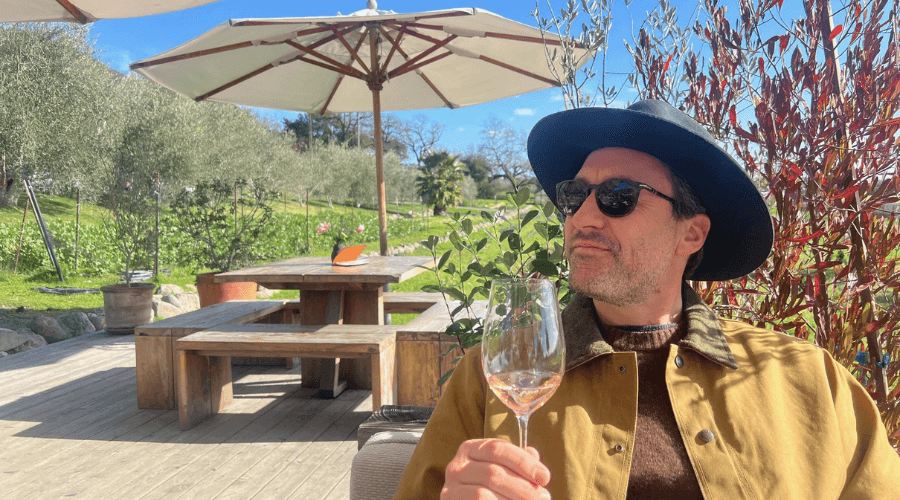
Image: Cristobal Fernandez - CEO, Via Pacifica US.
Conclusion
The private-label wine sector is experiencing a transformation—one that rewards agility, innovation, and deep market understanding. Via Pacifica’s commitment to quality, flexibility, and true partnership with buyers has positioned it as a leader in this space. Fernandez’s perspective makes it clear: success isn’t just about selling wine—it’s about building sustainable, strategic programs that help partners grow.
Looking ahead, Via Pacifica sees major opportunities in sustainability, lower-alcohol wines, and evolving consumer preferences. While challenges like distribution complexity and price sensitivity remain, Fernandez is confident that private-label wines will only continue to expand, eventually competing with legacy brands on an even greater scale.
In conversation with Malvika Patel, Editor and VP, Beverage Trade Network
Also Read:
Private Label Spirits: A Growing Category in the USA
The Pros of Private Label Wines and Spirits and How to Excel at it
Navigating the Pros and Cons of Own-Label Projects for Medium-Sized Wineries
If you're a bulk wine or bulk spirits supplier, contract bottler, or private label producer aiming to connect with serious trade buyers, IBWSS San Francisco is the event you can't afford to miss. Get a quotation or Book a exhibitor table.

